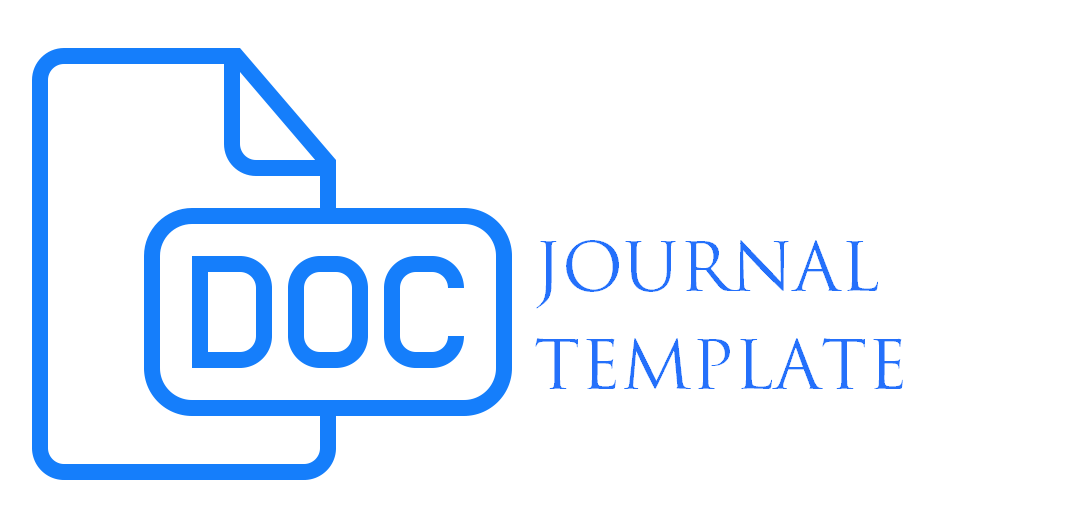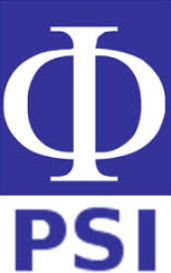- Focus and Scope
- Section Policies
- Peer Review Process
- Publication Frequency
- Open Access Policy
- Archiving
- Publication Ethics
- Plagiarism Screening
Focus and Scope
Jurnal Sains dan Pendidikan Fisika (JSPF) JSPF is a scientific journal that undergoes a peer-review process and is open access, focusing on the fields of science and physics education. The journal covers various topics such as theories, developments, and educational media in physics, as well as applied physics related to material physics, earth physics, instrumentation, and computational physics.
Section Policies
Articles
Peer Review Process
Jurnal Sains dan Pendidikan Fisika (JSPF) employs a peer review policy with the following mechanisms:
1. Article Submission:
- Authors submit articles to the scientific journal through the article submission system.
2. Introduction Examination by Editor:
- Journal editors conduct an introduction examination to ensure that the article adheres to the writing guidelines and the journal's focus.
3. Assignment of Peer Reviewers:
- Editors assign peer reviewers (peer reviewers) with expertise in the research field covered in the article.
4. Review by Peer Reviewers:
- Peer reviewers evaluate articles for aspects such as research methodology, validity of findings, clarity of writing, and scientific contribution.
5. Delivery of Review Report:
- Peer reviewers compile a review report that includes assessments, suggestions, and decisions regarding acceptance or revision.
6. Editor's Decision:
- Editors use the review report to make decisions regarding the publication of the article. Decisions can include acceptance, revision, or rejection.
7. Notification to Authors:
- Authors are informed of the peer review results, including the editor's decision and the review report.
8. Article Revision (If Necessary):
- If necessary, authors are requested to revise the article based on the suggestions and comments of the peer reviewers.
9. Review of Revisions by Peer Reviewers:
- Revised articles may undergo another review by peer reviewers to ensure improvements and compliance with revision suggestions.
10. Editor's Final Decision:
- Editors make the final decision based on the revisions made by the authors.
11. Editing and Publication:
- Accepted articles undergo a final editing process before being published in the journal.
The peer review process helps ensure the scientific quality and validity of articles before publication, providing constructive feedback to authors for improvement if needed.
Publication Frequency
Jurnal Sains dan Pendidikan Fisika (JSPF) publishes articles three times a year, namely in April, August, and December.
Open Access Policy
Jurnal Sains dan Pendidikan Fisika (JSPF) is committed to supporting the principles of open access to knowledge and research. We believe that knowledge generated from scientific research should be widely accessible and available to the global community without financial barriers. Therefore, this journal provides full open access to all published articles.
By implementing an open access model, we ensure that every individual, institution, and community has equal opportunities to access, read, and utilize the published research within this journal. All articles can be downloaded, distributed, and reused with proper attribution, in accordance with specific Creative Commons licenses that may be applied.
Our commitment to open access aligns with our mission to promote the dissemination of knowledge and make a positive contribution to global scientific advancement. We invite researchers, academics, practitioners, and the general public to benefit from the information we publish without restrictions, fostering the exchange of ideas and accelerating scientific progress.
Archiving
Jurnal Sains dan Pendidikan Fisika (JSPF) utilizes the LOCKSS system to create a distributed archive system among participating libraries. This system enables libraries to establish permanent archives of this journal for preservation and retrieval purposes.. More...
Publication Ethics
Statement of Ethical Behavior for Journal Publication
This statement elucidates the ethical conduct expected from all parties involved in the article publication process in our journal, including authors, editors, peer reviewers, and the publisher, Universitas Negeri Makassar. This statement is based on the COPE (Committee on Publication Ethics) Best Practice Guidelines for Journal Editors.
Ethical Guidelines for Journal Publication
Publishing articles in the Journal of Science and Physics Education (JSPF) through the peer-review process is a crucial building block in the development of a cohesive and respected knowledge network. It directly reflects the quality of the authors' work and the institutions supporting them. Peer-reviewed articles support and represent scientific methods. Therefore, it is important to establish ethical standards for all parties involved in the publication process: authors, journal editors, peer reviewers, publishers, and the community.
Universitas Negeri Makassar (UNM) and the Department of Physics as the publisher of this Journal take its supervisory role seriously at all stages of publication, and we are aware of ethical responsibilities and other obligations. We are committed to ensuring that advertising, reprints, or other commercial revenue has no impact or influence on editorial decisions. Additionally, Universitas Negeri Makassar and the Editorial Board will assist in communication with other journals or publishers as needed and beneficial.
Publication Decisions
The Editor of the Journal of Science and Physics Education (JSPF) is responsible for deciding which articles to publish. Validation of the work and its significance to researchers and readers should always be the primary consideration in making such decisions. The Editor may be guided by the journal's editorial policy and constrained by legal requirements related to defamation, copyright infringement, and plagiarism. The Editor may consult with other editors or reviewers in making these decisions.
Fair Play
Editors may evaluate any manuscript based on its content at any time, irrespective of race, gender, sexual orientation, religious belief, ethnic origin, nationality, or political philosophy of the authors.
Confidentiality
Editors and editorial staff must not disclose any information about submitted manuscripts to anyone other than the corresponding author, reviewers, potential reviewers, other editorial advisers, and the publisher, as appropriate.
Disclosure and Conflict of Interest
Unpublished materials disclosed in a submitted manuscript must not be used in an editor's research without the express written consent of the author.
Reviewer Responsibilities
Contribution to Editorial Decisions:
Peer review assists editors in making editorial decisions and, through editorial communication with authors, can also help authors improve their papers.
Timeliness:
Any selected referee who feels unqualified to review the research reported in a manuscript or knows that a prompt review is not possible should notify the editor and excuse themselves from the review process.
Confidentiality:
Any manuscript received for review must be treated as a confidential document. They must not be shown or discussed with others except as authorized by the editor.
Standards of Objectivity:
Reviews should be conducted objectively. Personal criticism of the author is inappropriate. Referees should express their views clearly with supporting arguments.
Acknowledgment of Sources:
Reviewers should identify relevant work that has not been cited by the authors. Any statement that an observation, derivation, or argument had been reported previously should be accompanied by the relevant citation. Reviewers should also inform the editor of any substantial similarity or overlap between the manuscript under consideration and any other paper they are aware of.
Disclosure and Conflict of Interest:
Information or ideas obtained through peer review must be kept confidential and not used for personal advantage. Reviewers should not consider manuscripts in which they have conflicts of interest resulting from competitive, collaborative, or other relationships with any of the authors, companies, or institutions connected to the papers.
Author Responsibilities
Reporting Standards:
Authors of original research reports should present an accurate account of the work performed and an objective discussion of its significance. Data should be represented accurately in the paper. A paper should contain sufficient detail and references to permit others to replicate the work. Fraudulent or knowingly inaccurate statements constitute unethical behavior and are unacceptable.
Data Access and Retention:
Authors are asked to provide the raw data related to a paper for editorial review and should be prepared to provide public access to such data (consistent with the ALPSP-STM Statement on Data and Databases), if practicable, and should, in any event, be prepared to retain such data for a reasonable time after publication.
Originality and Plagiarism:
Authors should ensure that they have written entirely original works, and if the authors have used the work and/or words of others, this should be appropriately cited or quoted.
Duplicate, Excessive, or Concurrent Publication:
An author should not generally publish manuscripts describing essentially the same research in more than one journal or primary publication. Submitting the same manuscript to more than one journal simultaneously constitutes unethical publishing behavior and is unacceptable.
Acknowledgment of Sources:
Proper acknowledgment of the work of others must always be given. Authors should cite publications that have been influential in determining the nature of the reported work.
Authorship of the Paper:
Authorship should be limited to those who have made a significant contribution to the conception, design, execution, or interpretation of the reported study. All those who have made significant contributions should be listed as co-authors. Where there are others who have participated in certain substantive aspects of the research project, they should be acknowledged or listed as contributors. The corresponding author should ensure that all appropriate co-authors and no inappropriate co-authors are included on the paper and that all co-authors have seen and approved the final version of the paper and have agreed to its submission for publication.
Hazards and Human or Animal Subjects:
If the work involves chemicals, procedures, or equipment that have any unusual hazards inherent in their use, the author must clearly identify these in the manuscript.
Disclosure and Conflict of Interest:
All authors should disclose in their manuscript any financial or other substantive conflicts of interest that might be construed to influence the results or interpretation of their manuscript. All sources of financial support for the project should be disclosed.
Errors in Published Works:
When an author discovers a significant error or inaccuracy in their own published work, it is the author's obligation to promptly notify the journal editor or publisher and cooperate with the editor to retract or correct the paper.
Plagiarism Screening
Plagiarism Screening Statement
Introduction to Plagiarism Screening:
Jurnal Sains dan Pendidikan Fisika (JSPF) implements stringent procedures to ensure the integrity and originality of each submitted manuscript. Plagiarism screening is an integral part of our evaluation process, and we are strongly committed to upholding high ethical standards in scientific publishing. Here is important information about the plagiarism screening procedure at JSPF:
1. Purpose of Plagiarism Screening:
Plagiarism screening aims to identify and prevent academic dishonesty, ensuring that every published manuscript is an original work and not a result of duplication or unauthorized copying.
2. Plagiarism Detection Tool - Turnitin:
JSPF employs Turnitin as one of the leading and sophisticated plagiarism detection tools. Turnitin checks text similarity between the submitted manuscript and previously published works, as well as other online and offline sources. The allowable plagiarism limit is set at 20%.
3. Pre-Peer Review Screening:
The initial step of plagiarism screening occurs before the manuscript undergoes the peer-review process. This helps identify potential plagiarism issues early on, ensuring that only manuscripts meeting ethical standards proceed to further evaluation.
4. Commitment to Fairness and Transparency:
The plagiarism screening process is executed with a full commitment to fairness and transparency. Authors will be given an opportunity to provide clarification if legitimate text similarity with previous works is detected.
5. Results and Decisions:
The results of plagiarism screening will be considered alongside the peer-review outcomes. Editor decisions will be based on a comprehensive evaluation of the manuscript's originality and scholarly quality.
6. Consequences of Plagiarism:
In case of significant plagiarism, manuscripts may be rejected. Authors may be given an opportunity to revise the manuscript or provide clarification, but the editor's final decision is not subject to appeal.
7. Guidelines for Authors:
Authors are encouraged to understand the publication guidelines and ethics before submitting a manuscript. Presenting original work and giving proper attribution to each source is the responsibility of the author.
We are committed to maintaining the integrity and quality of the Jurnal Sains dan Pendidikan Fisika. Plagiarism screening is a crucial step in ensuring that every scholarly contribution is valued and acknowledged fairly.











